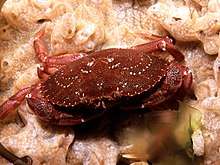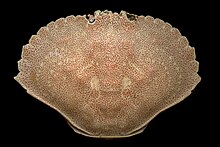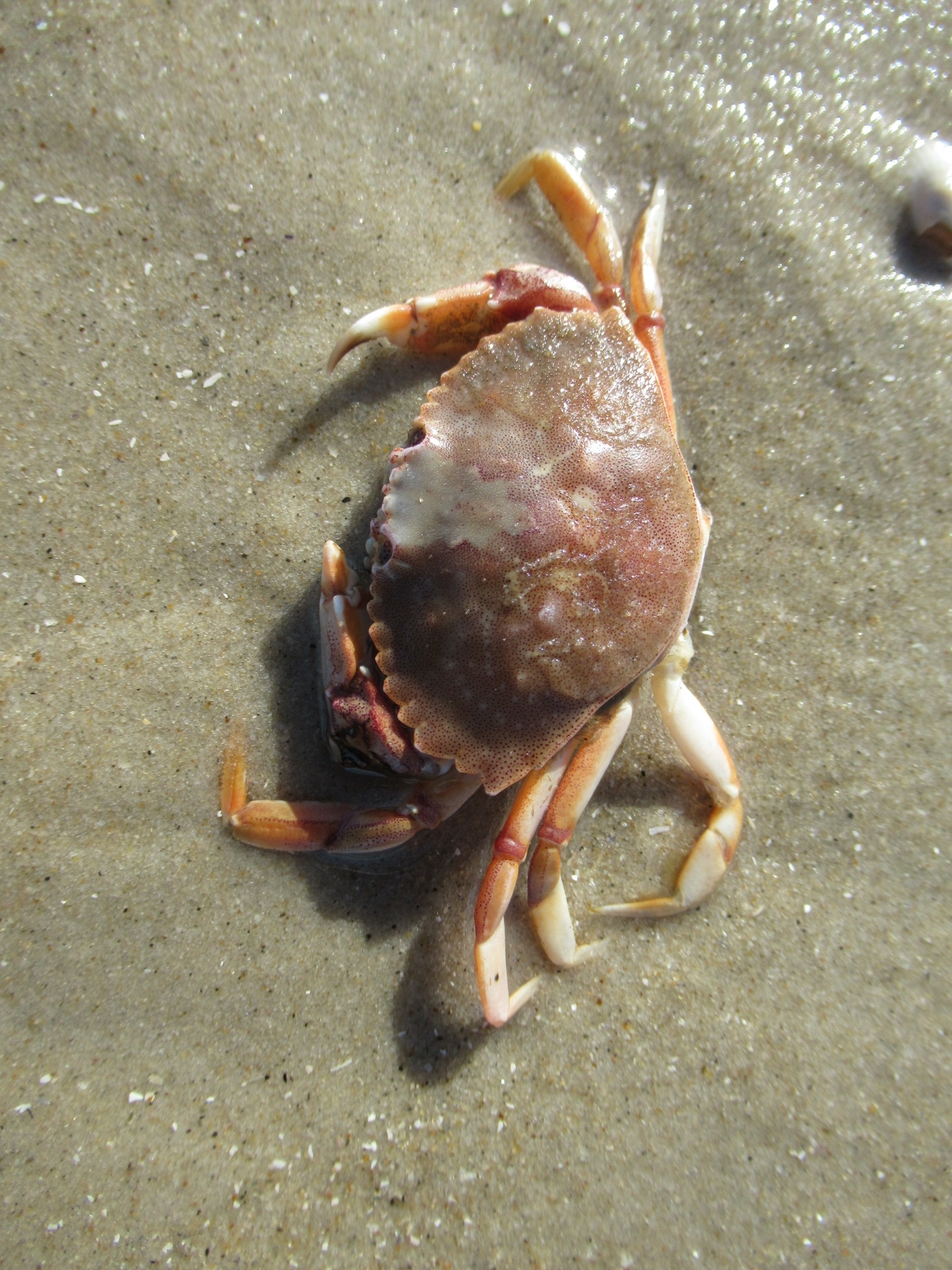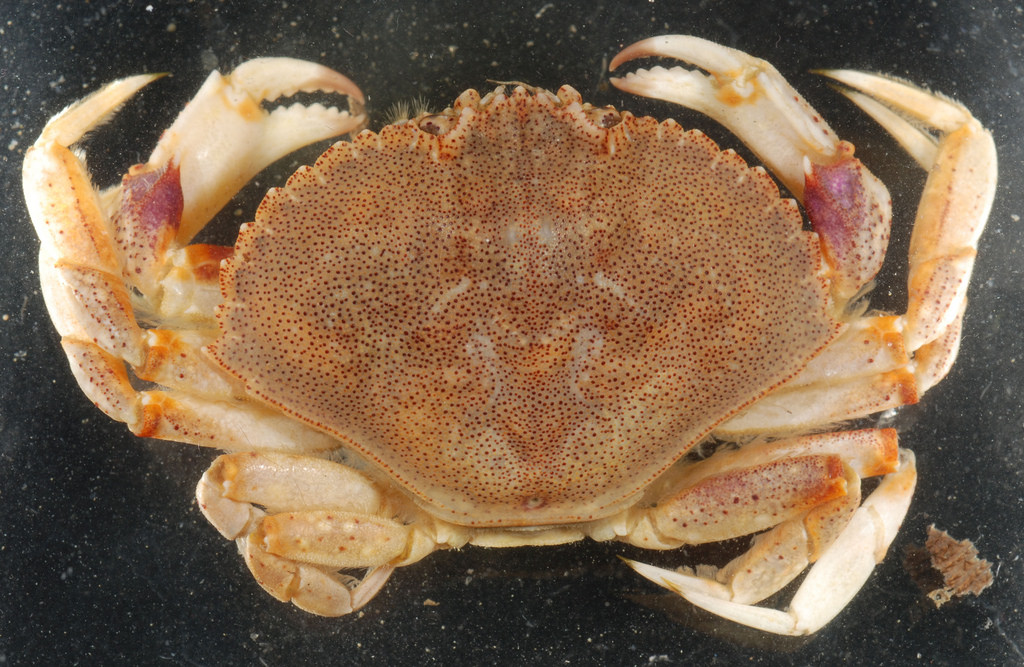Map Snapshot


14 Records
Seasonality Snapshot
Source: Wikipedia
| Cancer irroratus | |
|---|---|

| |
| Scientific classification | |
| Domain: | Eukaryota |
| Kingdom: | Animalia |
| Phylum: | Arthropoda |
| Class: | Malacostraca |
| Order: | Decapoda |
| Suborder: | Pleocyemata |
| Infraorder: | Brachyura |
| Family: | Cancridae |
| Genus: | Cancer |
| Species: | C. irroratus
|
| Binomial name | |
| Cancer irroratus Say, 1817
| |
Cancer irroratus (common name the Atlantic rock crab or peekytoe crab) is a crab in the genus Cancer. It is found from Iceland to South Carolina at depths up to 2,600 ft (790 m), and reaches 133 mm (5.2 in) across the carapace.
Distribution
[edit]
This crab species occurs on the eastern coast of North America, from Iceland to South Carolina.[1] Rock crabs live over a large depth range, from well above the low tide line to as deep as 2,600 feet (790 m).[1]
Description
[edit]Cancer irroratus has nine marginal teeth on the front edge of the carapace beside each eye,[1] and reaches a carapace width of 5.25 inches (133 mm).[2] These crabs are similar in color to, and overlap in size with, the Jonah crab, Cancer borealis.[2] The two species can indeed be distinguished by the purplish-brown spots on the carapace of C. irroratus (contrasting with the yellow spots of C. borealis), and by the smooth edges to the teeth on the edge of the carapace (denticulate in C. borealis).[2]
Fisheries
[edit]The rock crab has recently become a popular culinary item. The name "peekytoe crab" refers to the fact that the legs are "picked" (a Maine colloquialism meaning "curved inward").[3] Until about 1997, they were considered a nuisance species by the lobster industry because they would eat the bait off of lobster traps.[1]
References
[edit]- ^ a b c d Krista Page (2002). "Cancer irroratus, Atlantic rock crab". Animal Diversity Web. University of Michigan. Retrieved June 12, 2011.
- ^ a b c Alice Jane Lippson & Robert L. Lippson (2006). "Deeper, open waters". Life in the Chesapeake Bay (3rd ed.). Johns Hopkins University Press. pp. 258–289. ISBN 978-0-8018-8338-5.
- ^ Peggy Trowbridge Filippone. "Peekytoe Crab Information". About.com. Archived from the original on September 11, 2016. Retrieved July 13, 2009.
External links
[edit] Media related to Cancer irroratus at Wikimedia Commons
Media related to Cancer irroratus at Wikimedia Commons- Canada Fisheries and Oceans Stock Status Report 2000
- Photos of Cancer irroratus on Sealife Collection


